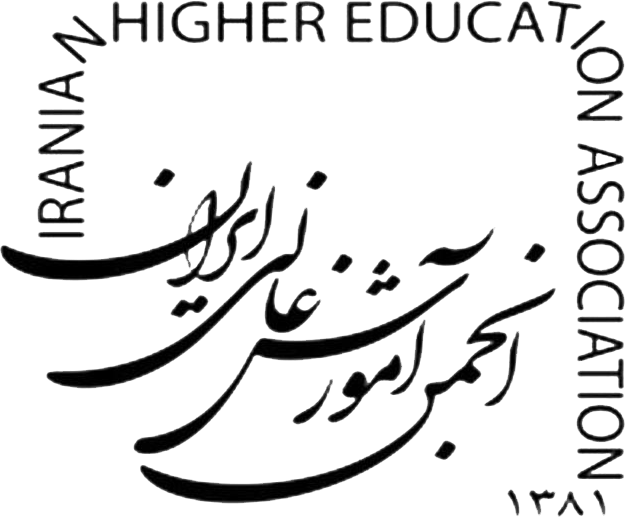Volume 14, Issue 3 (2023)
ihej 2023, 14(3): 20-39 |
Back to browse issues page
Download citation:
BibTeX | RIS | EndNote | Medlars | ProCite | Reference Manager | RefWorks
Send citation to:



BibTeX | RIS | EndNote | Medlars | ProCite | Reference Manager | RefWorks
Send citation to:
Rajaee A. Pathology of higher education policy making in Iran. ihej 2023; 14 (3) :20-39
URL: http://ihej.ir/article-1-1909-en.html
URL: http://ihej.ir/article-1-1909-en.html
Researcher of Science and Technology Department, Hekmat Institute for Policy Research and Strategic Studies, Tehran, Iran; Ph.D. graduate of Shahid Beheshti University in Higher Education , amir_rajaee99@yahoo.com
Abstract: (2781 Views)
Purpose: Today, higher education plays an important role for countries in achieving sustainable growth and development. Therefore, addressing higher education issues is very important. Among the issues facing the country's higher education, we can mention the problems of its policy making. Therefore, the aim of the current research is to identify the problems of higher education policy making in Iran.
Methodology: To achieve the goal of the research, qualitative approach and documentary study method as well as phenomenological method were used through semi-structured interview tool. In this way, the data were collected from the published texts of experts about the harms of higher education policy and also from the implemented texts of the interviews conducted with experts until reaching theoretical saturation. Then, the collected data were analyzed by thematic content analysis method and classified into three general categories of structural problems, process problems and problems related to contextual characteristics.
Findings: The findings indicated that the macro-process problems of the country's higher education policy-making include "the lack of scientific and practical requirements of the policy-making process" and "weakness in the proper implementation of written policies". Also, the macro-structural problems of the country's higher education policymaking include "weakness to meet the requirements needed for the proper implementation of the centralized administration system" and "inefficiency and low effectiveness of the Supreme Council of the Cultural Revolution". Major problems related to the contextual characteristics of higher education policymaking in the country also include "unfavorability of contextual characteristics for policymaking on higher education issues", "cultural inefficiency of universities in building a normative system and in producing science and providing its requirements" and "incorrect understanding of the phenomenon of Science and Technology and the phenomenon of Higher Education and not reaching a consensus on them. At the end, some suggestions were made to eliminate or minimize these problems along with a set of policy recommendations.
Discussion and Conclusion: Improving the "higher education policy making of the country" requires providing the ground for the preparation of legal, political, economic, technological, cultural and social factors related to "it". In this regard, following the policy recommendations presented in this research can be fruitful.
Methodology: To achieve the goal of the research, qualitative approach and documentary study method as well as phenomenological method were used through semi-structured interview tool. In this way, the data were collected from the published texts of experts about the harms of higher education policy and also from the implemented texts of the interviews conducted with experts until reaching theoretical saturation. Then, the collected data were analyzed by thematic content analysis method and classified into three general categories of structural problems, process problems and problems related to contextual characteristics.
Findings: The findings indicated that the macro-process problems of the country's higher education policy-making include "the lack of scientific and practical requirements of the policy-making process" and "weakness in the proper implementation of written policies". Also, the macro-structural problems of the country's higher education policymaking include "weakness to meet the requirements needed for the proper implementation of the centralized administration system" and "inefficiency and low effectiveness of the Supreme Council of the Cultural Revolution". Major problems related to the contextual characteristics of higher education policymaking in the country also include "unfavorability of contextual characteristics for policymaking on higher education issues", "cultural inefficiency of universities in building a normative system and in producing science and providing its requirements" and "incorrect understanding of the phenomenon of Science and Technology and the phenomenon of Higher Education and not reaching a consensus on them. At the end, some suggestions were made to eliminate or minimize these problems along with a set of policy recommendations.
Discussion and Conclusion: Improving the "higher education policy making of the country" requires providing the ground for the preparation of legal, political, economic, technological, cultural and social factors related to "it". In this regard, following the policy recommendations presented in this research can be fruitful.
Subject:
Special
Received: 2022/10/19 | Accepted: 2023/03/1 | ePublished ahead of print: 2023/02/20
Received: 2022/10/19 | Accepted: 2023/03/1 | ePublished ahead of print: 2023/02/20
Send email to the article author
| Rights and permissions | |
 |
This work is licensed under a Creative Commons Attribution-NonCommercial 4.0 International License. |





